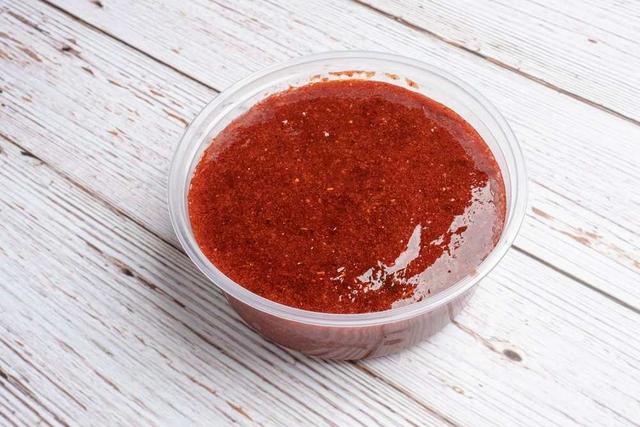A metallic taste in your mouth can result from medications, dental issues, or underlying health conditions. It’s crucial to identify the cause for proper treatment.
Experiencing a metallic taste can be unsettling and disruptive. Common causes include certain medications, which may alter your taste perception. Dental problems like gum disease or infections can also contribute. Sometimes, underlying health conditions, such as kidney disease or diabetes, might be the culprit.
Identifying the exact cause is essential for effective treatment. Consulting a healthcare provider can help determine the reason and provide appropriate solutions. Maintaining good oral hygiene and regular dental check-ups can prevent some of the dental-related causes of a metallic taste. Understanding these factors can help you address the issue more effectively.
Common Causes
A metallic taste in the mouth can be unpleasant and concerning. This odd taste can stem from various causes. Understanding these causes can help you find a solution. Here are some common causes of a metallic taste in your mouth.
Medications
Many medications can cause a metallic taste. Some common ones include:
- Antibiotics: These can alter your taste buds.
- Antidepressants: These may lead to dry mouth and taste changes.
- Blood pressure medications: These can affect saliva production.
- Diuretics: These can cause dehydration and a metallic taste.
If you start a new medication and notice a metallic taste, consult your doctor. They may adjust your dosage or switch medications.
Dental Issues
Dental problems can also cause a metallic taste. Common dental issues include:
- Gingivitis: Inflammation of gums can alter taste.
- Periodontitis: Advanced gum disease may cause taste changes.
- Dental fillings: Metal fillings can sometimes cause a metallic taste.
- Oral infections: Infections can lead to a bad taste in the mouth.
Maintaining good oral hygiene can help prevent these issues. Regular dental check-ups are essential to catch problems early.
Health Conditions
Experiencing a metallic taste in your mouth can be unsettling. Various health conditions might be the cause. This section delves into some common health-related reasons for this peculiar taste.
Infections
Infections can lead to a metallic taste. Sinus infections, colds, and upper respiratory infections are common culprits. They affect your taste buds and sense of smell, making food taste metallic.
Oral infections, such as gingivitis or periodontitis, can also cause this issue. Bacteria in the mouth can produce metallic-tasting compounds.
Antibiotics used to treat infections may result in a metallic taste. This side effect is temporary and should go away after stopping the medication.
Neurological Disorders
Some neurological disorders can affect the taste senses. Conditions like Alzheimer’s disease and Parkinson’s disease can alter taste perception.
Multiple sclerosis (MS) is another neurological condition that may cause a metallic taste. Damage to the brain or nerves disrupts taste signals to the brain.
Seizure disorders or epilepsy can also trigger this sensation. Seizures can affect the brain’s taste-processing areas.
Nutritional Deficiencies
Many people wonder, “Why does my mouth taste like metal?” Often, nutritional deficiencies are the culprits. When your body lacks certain vitamins or minerals, it can lead to various symptoms, including a metallic taste.
Vitamin Deficiency
One common cause is a lack of vitamins. Vitamins are crucial for your overall health. A deficiency in certain vitamins can lead to a metallic taste in your mouth.
- Vitamin B12: Essential for nerve function and red blood cell production.
- Vitamin D: Helps with calcium absorption and bone health.
| Vitamin | Role | Sources |
|---|---|---|
| Vitamin B12 | Red blood cell production | Meat, dairy, eggs |
| Vitamin D | Calcium absorption | Sunlight, fish, fortified milk |
Mineral Imbalance
Another reason for a metallic taste can be a mineral imbalance. Your body needs minerals to function properly. An imbalance can cause strange tastes.
- Iron: Important for blood health.
- Zinc: Helps your immune system and wound healing.
| Mineral | Role | Sources |
|---|---|---|
| Iron | Blood health | Red meat, beans, spinach |
| Zinc | Immune function | Meat, nuts, dairy |
Environmental Factors
Environmental factors can impact the taste in your mouth. Some factors might lead to a metallic taste. Identifying these factors can help address the issue.
Exposure To Metals
Exposure to metals is a common cause. This can happen in various ways.
- Working in industries dealing with metals.
- Living near metal processing plants.
- Using metal utensils or containers.
These metals can enter your body through inhalation or ingestion. They might lead to a metallic taste in your mouth. Ensuring proper safety measures and reducing exposure can help mitigate this.
Chemical Inhalation
Chemical inhalation is another environmental factor. You might inhale chemicals at work or home.
Common sources include:
- Cleaning agents.
- Paints and solvents.
- Pesticides.
These chemicals can affect your taste buds. They might lead to a metallic taste. It is important to use protective gear. Ensuring proper ventilation can also reduce inhalation risks.
Lifestyle Habits
Many people wonder why their mouth tastes like metal. One of the common reasons could be related to lifestyle habits. These habits can significantly impact the taste in your mouth. Let’s explore two key factors: smoking and diet choices.
Smoking
Smoking can lead to a metallic taste in the mouth. The chemicals in cigarettes can alter taste buds. This can result in a persistent metallic taste. Smoking also reduces saliva production. Less saliva means more bacteria, which can cause a metal taste.
Diet Choices
What you eat can also affect your taste. Certain foods and drinks can leave a metallic taste. Here are some examples:
- Strong-tasting foods like garlic and onions.
- Acidic fruits such as citrus fruits.
- Processed foods with high levels of preservatives.
Consuming too much of these foods can cause a metallic taste. Maintaining a balanced diet can help mitigate this issue.
| Food Type | Effect |
|---|---|
| Garlic and Onions | Strong aftertaste |
| Citrus Fruits | Acidic taste |
| Processed Foods | Preservative aftertaste |
By understanding these lifestyle habits, you can take steps to improve the taste in your mouth.
Hormonal Changes
Hormonal changes can affect many parts of the body. One surprising symptom is a metallic taste in the mouth. This can occur due to fluctuations in hormones.
Pregnancy
During pregnancy, many women experience a metallic taste. This is due to the rise in estrogen and progesterone. These hormones can change the way taste buds react. The taste can be unpleasant and persistent.
Some women find relief with these tips:
- Chewing sugar-free gum.
- Eating citrus fruits.
- Drinking plenty of water.
These simple remedies can help manage the taste. It usually goes away after the first trimester.
Menopause
Menopause also brings hormonal changes. Women in menopause may notice a metallic taste in their mouth. This is due to declining levels of estrogen.
Other symptoms of menopause include:
- Hot flashes
- Night sweats
- Mood swings
Managing these symptoms can be challenging. Drinking water and chewing gum may help reduce the metallic taste.
Diagnosis
Experiencing a metallic taste in your mouth can be puzzling. Diagnosing the cause is crucial for effective treatment. This section will guide you through the process of diagnosis.
Medical Tests
Doctors may use various medical tests to find the cause of the metallic taste. These tests help identify underlying health issues.
- Blood tests can detect nutritional deficiencies.
- Urine tests may reveal kidney issues.
- Imaging tests like X-rays can uncover dental problems.
Each test provides valuable information. They help your doctor pinpoint the exact issue.
Professional Consultation
Seeking a professional consultation is essential. A healthcare professional can give expert advice.
Here’s what to expect during a consultation:
- The doctor will review your medical history.
- They will ask about your diet and lifestyle.
- A physical examination will be conducted.
- Additional tests may be recommended based on initial findings.
Consulting a dentist is also wise. They can check for oral health issues like gum disease or tooth decay. Working with professionals ensures a thorough diagnosis.
Treatment Options
Experiencing a metallic taste in your mouth can be unpleasant. Fortunately, several treatment options are available to address this issue. Here, we discuss effective home remedies and medical interventions to help you regain normal taste sensation.
Home Remedies
Home remedies can often alleviate a metallic taste in the mouth. These solutions are easy to try and can provide quick relief.
- Brush and Floss Regularly: Good oral hygiene can remove any metallic taste.
- Rinse with Baking Soda: Mix a teaspoon of baking soda in water. Rinse your mouth daily to neutralize acids.
- Chew Sugar-Free Gum: Stimulate saliva flow to wash away the metallic taste.
- Stay Hydrated: Drink plenty of water to keep your mouth moist.
- Use Lemon: Suck on a lemon wedge to stimulate saliva production.
Medical Interventions
Sometimes, home remedies may not be enough. Medical interventions can offer a more targeted approach to treating a metallic taste in the mouth.
| Intervention | Description |
|---|---|
| Consult a Dentist | Address oral issues like gum disease or cavities. |
| Review Medications | Some drugs can cause a metallic taste. Consult your doctor to adjust your prescription. |
| Blood Tests | Identify deficiencies in vitamins or minerals. |
| Treat Underlying Conditions | Conditions like diabetes or GERD may cause metallic taste. |
| Specialist Consultation | See an ENT specialist for complex cases. |
Prevention Tips
Dealing with a metallic taste in your mouth can be frustrating. Luckily, there are ways to prevent it. Focus on a healthy diet and ensure you have regular check-ups. These tips can help you maintain a fresh taste in your mouth.
Healthy Diet
Eating a balanced diet is crucial for oral health. Here are some tips:
- Consume fresh fruits and vegetables. They help keep your mouth clean.
- Avoid processed foods. They can leave an unpleasant aftertaste.
- Stay hydrated. Drinking water helps wash away food particles.
- Limit sugary snacks. They can cause bacteria buildup.
| Food | Benefit |
|---|---|
| Apples | Natural mouth cleaner |
| Carrots | Reduces plaque |
| Yogurt | Good for gut health |
Regular Check-ups
Seeing a dentist regularly is important. It helps catch issues early. Follow these steps:
- Schedule check-ups every six months.
- Get professional cleanings to remove plaque.
- Discuss any changes in taste with your dentist.
- Follow dental advice for maintaining oral health.
Regular visits ensure that your mouth stays healthy and free from strange tastes. If you notice any persistent metallic taste, consult your dentist immediately.
Frequently Asked Questions
What Causes A Metallic Taste In My Mouth?
A metallic taste can result from medications, dental issues, or dietary changes. It can also indicate underlying health conditions. Consult a healthcare provider.
Can Stress Cause A Metallic Taste?
Yes, stress can cause changes in taste perception, including a metallic taste. Managing stress through relaxation techniques may help.
Is A Metallic Taste A Sign Of Covid-19?
Yes, a metallic taste has been reported by some COVID-19 patients. If you experience this along with other symptoms, get tested.
How Can I Get Rid Of A Metallic Taste?
Improving oral hygiene, staying hydrated, and avoiding metal utensils may help. If it persists, consult a healthcare provider.
Conclusion
Experiencing a metallic taste in your mouth can be unsettling. It often signals an underlying health issue. Identifying the cause is crucial for effective treatment. If symptoms persist, consult a healthcare professional. Addressing the issue promptly ensures better oral health and overall well-being.
Stay proactive about your health for lasting comfort.
Learn More About Grilling
If you want to learn more about grilling, check out these other helpful resources!











